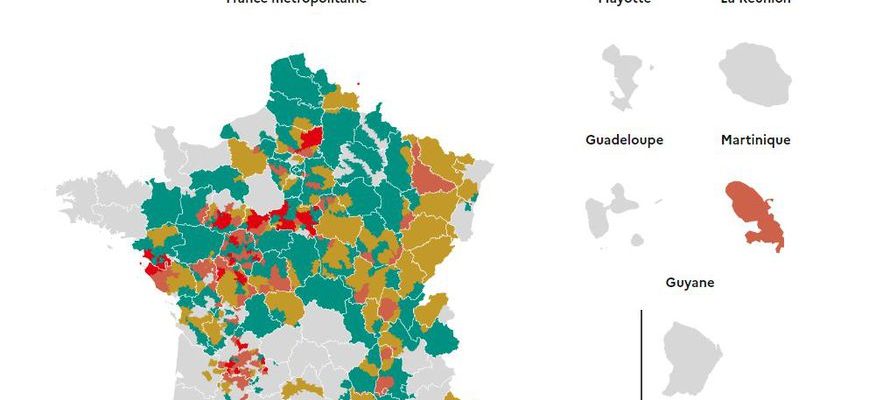The drought intensifies in France. The first week of July has become the hottest on record worldwide, according to the UN meteorological organization. But drinking water is starting to run out: since last summer, the groundwater “has not been recharged”, confirmed this Tuesday, July 11 the Minister of Ecological Transition Christophe Béchu on France Inter. “We are still at 68% of the tablecloths below normal for the season.” To avoid running out of reserves, the government has therefore launched a new IT tool: the VigiEau.
This aims to inform the general public about the state of the drought in France. The user will only have to enter his address in the search bar to find out about the water restrictions in force. The portal will allow everyone “to have immediate access to the situation, the instructions to be followed and the reminder of good practices”, detailed Christophe Béchu during a press conference on Tuesday.
“The drought is concentrated in tourist periods, when a certain number of people are not at home”, continued the minister. The use of VigiEau should thus facilitate access to information. “Just a town name” is enough, said Christophe Béchu. The platform also displays a map of France, updated every day, for people who would like to “get an idea” of the situation “without typing an address”. Finally, all the prefectural decrees are available on the portal.
Map on water restrictions in France published on the VigiEau website on July 11
© / VigiWater
€1,500 fine
Before displaying the restrictions, the VigiEau platform reminds the user that in the event of non-compliance with the instructions, he is liable to a fine of 1,500 euros. It then details the rules according to the activated alert level. Vigilant territories are simply encouraged to save water. Those placed on alert must reduce all withdrawals, including agricultural ones. The watering of green spaces and the emptying of swimming pools is supervised, especially when the area reaches the heightened alert threshold. Finally, in a state of crisis, water is only kept for “priority uses”.
This Monday, more than 65 departments already had restrictive measures in force on their territory. The drought is more or less important depending on the region. The situation is not alarming in Brittany, according to Christophe Béchu, but “worse in the Paris basin”. It is “worrying” in the Rhone corridor and around the Mediterranean.
The Bureau of Geological and Mining Research (BRGM) will publish complete figures on the state of groundwater on July 11. For now, the outlook is not very optimistic: June was the second hottest month ever recorded in the country. But the French consume an average of 148 liters of drinking water per day and per person, according to the government. The scenario of last summer, where some 700 municipalities were deprived of water, is therefore likely to be repeated.
